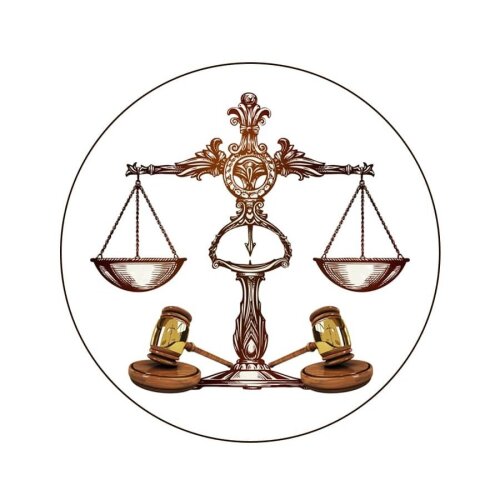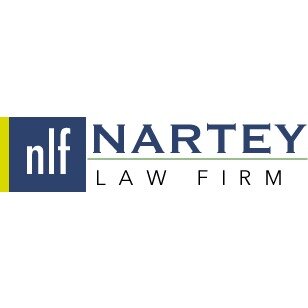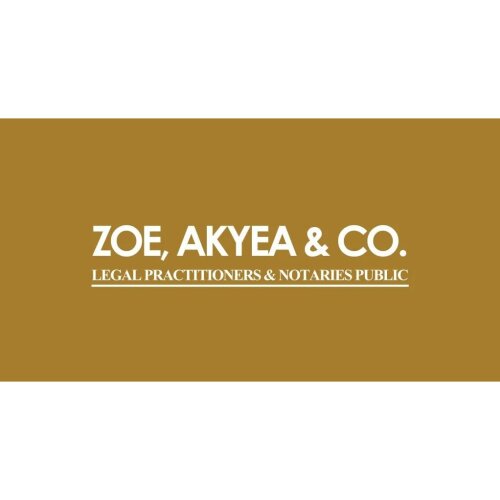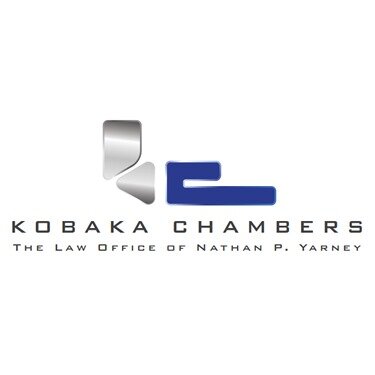Best Inheritance Law Lawyers in Ghana
Share your needs with us, get contacted by law firms.
Free. Takes 2 min.
Or refine your search by selecting a city:
List of the best lawyers in Ghana
1. About Inheritance Law in Ghana
Inheritance law in Ghana blends statutory rules with customary practices. Statutory frameworks cover issues such as intestate distribution, wills, probate, and administration of estates. Customary law remains influential in many communities, especially for land and family wealth held under traditional tenure systems.
The key statutory pillars provide default rules when there is no will, or when a will is created to govern the disposition of assets after death. Practitioners in this area must navigate between formal court processes and customary expectations. This guide explains the core concepts, practical steps, and how a Ghanaian lawyer can help you protect your rights and secure a fair outcome.
2. Why You May Need a Lawyer
-
Disputes among spouses or children over an intestate estate. When a person dies without a valid will, the distribution follows statutory rules that may conflict with family expectations or customary claims. A solicitor can clarify who is entitled to what share and help you pursue or defend a claim in court if necessary.
-
Applying for probate or letters of administration. After a death, executors or personal representatives must obtain legal authority to administer the estate. An attorney can prepare the required petitions, identify assets and debts, and navigate court procedures to grant probate or administration.
-
Challenging or validating a will. If a will is contested for lack of capacity, undue influence, or improper execution, a lawyer can advise on grounds for challenge or defense and represent you in court.
-
Resolving land and property rights under customary law. Many estates involve land held under customary tenure. A legal professional can help reconcile customary rights with statutory rules to avoid invalid transfers or future disputes.
-
Fraud, debt settlement, and creditor claims. Estates often owe debts to banks or relatives. A lawyer can prioritize creditors, advise on insolvent estates, and ensure proper discharge of liabilities before distribution.
-
Estate administration for non-residents or mixed domiciles. When assets are located in multiple jurisdictions or heirs live abroad, a solicitor can coordinate cross-border probate and compliance with local laws.
3. Local Laws Overview
The following statutes shape how inheritance matters are handled in Ghana. They interact with customary practices and modern court procedures. For precise text and updates, consult official Ghanaian legislation portals and court resources.
- Intestate Succession Law, PNDC Law 111 (1981). This statute sets out how a deceased person’s estate is distributed when there is no valid will. It covers who inherits, in what order, and under what conditions. The law aims to standardize distribution while accommodating surviving spouses and children.
- The Wills Act (Ghana). This statute governs the creation, execution, alteration and revocation of wills. It lays out requirements for testamentary capacity, formal execution, witnesses, and probate eligibility. Wills provide a statutory framework to control posthumous asset distribution when a valid will exists.
- Probate and Administration framework (Judicial and Registry processes). Probate and administration processes govern how estates are validated and managed by courts and registries. This includes appointment of executors or administrators, inventory of assets, settlement of debts, and final distribution to beneficiaries.
Recent trends in Ghana include efforts to harmonize customary inheritance practices with statutory rules to promote gender equality and reduce delays in probate proceedings. See official Ghanaian government resources for current procedures and timelines.
According to the Ghana Judicial Service, probate matters are handled by the Probate Registry as part of the court system, ensuring proper administration of estates and enforcement of wills where applicable.
For authoritative references, see official government portals: - Judiciary of Ghana - Ministry of Justice and Attorney General - Ghana Government Portal
4. Frequently Asked Questions
Below are common questions about inheritance law in Ghana, phrased in plain language. Each item is concise but informative, addressing procedural, definitional, cost, and timeline concerns.
What is intestate succession in Ghana?
Intestate succession applies when someone dies without a valid will. The law prescribes how the person’s estate is divided among surviving spouses, children, and other relatives. A lawyer can identify rightful heirs and the correct shares.
How do I start probate or administration of an estate?
Begin by filing a petition with the appropriate court or probate registry. You will need death certificates, a will if one exists, asset details, and debt information. An attorney can prepare filings and respond to court requests.
What is the difference between a will and intestate succession?
A will expresses how assets should be distributed, while intestate succession applies when no valid will exists. A will can override statutory shares if lawful and properly executed.
How much does it cost to hire an inheritance lawyer?
Fees vary by case complexity and location. Lawyers may charge a flat fee for simple matters or an hourly rate for contested cases. Request a written retainer and estimate before work begins.
Do I need a Ghanaian lawyer if the estate is in another country?
Yes, cross-border estates require local and international coordination. A Ghanaian solicitor can manage Ghanaian probate while coordinating with foreign counsel when assets span jurisdictions.
How long does probate typically take in Ghana?
Simple estates may complete probate within 6-9 months. Complex cases with land and disputes can take 12-24 months or longer depending on court availability and cooperation of heirs.
What is the process to contest a will?
You must show grounds such as lack of testamentary capacity, undue influence, or improper execution. A lawyer can prepare evidence and represent you in court.
Can a will be challenged after it is executed?
Yes, but challenges are subject to time limits and legal standards. An attorney can assess whether a challenge is viable and guide you through possible remedies.
Should I appoint an executor or administrator?
Appointing a trusted person or professional can help ensure assets are collected, debts paid, and beneficiaries receive their shares. An attorney can advise on suitability and filing requirements.
Do I need witnesses for a will in Ghana?
Yes, wills typically require witnesses and proper formalities to be valid. An attorney can ensure compliance with execution requirements.
Is probate mandatory for all estates?
Probate is generally required to validate a will and authorize asset distribution. Some small or uncomplicated estates may qualify for simplified procedures, depending on local rules.
What happens if a beneficiary is not satisfied with the distribution?
You may pursue mediation, negotiation through counsel, or court action to challenge, modify, or enforce the distribution plan. Legal guidance is essential in contested cases.
5. Additional Resources
These official government and judiciary resources provide authoritative information on inheritance matters in Ghana.
- Judiciary of Ghana - Provides information on probate, wills, and administration of estates, including how to file petitions and navigate court processes. https://judiciary.gov.gh
- Ministry of Justice and Attorney General - Publishes guidance on inheritance law, property rights, and legal procedures for estates. https://justice.gov.gh
- Ghana Government Portal - Central government information hub with links to laws and regulatory updates relevant to estates, wills, and probate. https://ghana.gov.gh
6. Next Steps
- Identify your goals and collect key documents. Gather death certificates, potential wills, property deeds, loan documents, and a list of heirs. Do this within 1-2 weeks to create a clear starting point.
- Consult a lawyer specializing in inheritance law. Research Ghanaian solicitors or attorneys with probate experience. Schedule initial consultations within 2-4 weeks of gathering documents.
- Obtain a clear written engagement with a lawyer. Confirm scope of work, retainer, and fee structure. Expect a formal retainer within 1 week after choosing counsel.
- File probate or administration petitions promptly. Your lawyer will prepare petitions and supporting documents for submission to the court or probate registry. This typically occurs within 2-6 weeks after engagement.
- Manage asset inventory and debt settlement under court supervision. Work with your attorney to list assets, identify debts, and resolve claims. Expect ongoing coordination over 3-9 months depending on complexity.
- Attend hearings and respond to requests for information. Courts may request additional documents or clarifications. Respond promptly to avoid delays; your attorney will guide you.
- Receive distribution and close the estate. After debts are paid and shares allocated, the court issues orders for final distribution. The process may conclude 6-24 months from filing, depending on factors.
Lawzana helps you find the best lawyers and law firms in Ghana through a curated and pre-screened list of qualified legal professionals. Our platform offers rankings and detailed profiles of attorneys and law firms, allowing you to compare based on practice areas, including Inheritance Law, experience, and client feedback.
Each profile includes a description of the firm's areas of practice, client reviews, team members and partners, year of establishment, spoken languages, office locations, contact information, social media presence, and any published articles or resources. Most firms on our platform speak English and are experienced in both local and international legal matters.
Get a quote from top-rated law firms in Ghana — quickly, securely, and without unnecessary hassle.
Disclaimer:
The information provided on this page is for general informational purposes only and does not constitute legal advice. While we strive to ensure the accuracy and relevance of the content, legal information may change over time, and interpretations of the law can vary. You should always consult with a qualified legal professional for advice specific to your situation.
We disclaim all liability for actions taken or not taken based on the content of this page. If you believe any information is incorrect or outdated, please contact us, and we will review and update it where appropriate.
Browse inheritance law law firms by city in Ghana
Refine your search by selecting a city.














